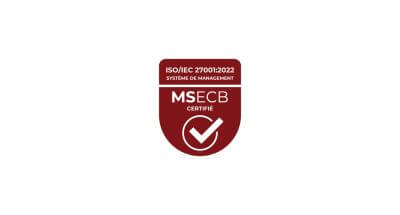
French tertiary decree: everything you need to know
The French Tertiary Eco-Efficiency System (Dispositif Eco Efficacité Tertiaire, DEET), also known as the French “tertiary decree”, aims to reduce in stages the energy consumption of French tertiary buildings larger than 1,000 m2. Long-term objective: to reduce the energy consumption of these buildings by 60% by 2050. Quick overview of this decree.
What is the tertiary decree? What are its objectives?
The tertiary decree, which came into force in October 2019, specifies the conditions for application of the ELAN law. Article 175 of the ELAN law, under the French Construction and housing code, requires a reduction in the energy consumption of buildings for tertiary use.
The tertiary decree describes:
- The scope of the obligation
- How the reduction objectives are determined and modulated
- The means for compiling and monitoring energy consumption via the OPERAT platform
- The control and the administrative sanctions if the obligations are not respected
The tertiary decree therefore clearly sets out the objectives of the state for reducing energy consumption among tertiary installations in France. Next comes the acceleration in regional planning and the energy transition in the property sector.
Who is affected by decree no. 2019-771 of 23 July 2019?
The tertiary decree is aimed at owners and occupiers of buildings or premises for tertiary use (public and private), the operating surface area of which is 1,000 m2 or more. Note that the surface area taken into account can be cumulative if the building hosts several companies or if the site consists of several buildings.
What are the regulatory obligations of the tertiary decree?
Taking into account energy consumption for a reference year later than 2010, the players in the tertiary sector must respect energy performance thresholds. The decree therefore requires a reduction of 40% in the consumption of tertiary buildings by 2030, a 50% reduction by 2040 and a 60% reduction by 2050.
What actions are to be carried out?
The French state makes available to the operators concerned the OPERAT IT platform, managed by the ADEME*. Using this platform, operators must declare the following information:
- The tertiary activity(-ies) carried out
- The surface area of the buildings subject to the obligation
- The annual energy consumption for each type of energy
- If applicable, the reference year chosen and the associated reference consumption, for each type of energy, with the corresponding justification
- The regulatory modulations selected
Each year starting from 2022, the data relating to the previous year must be sent no later than 30 September.
The aim of this platform is to monitor the progress of energy consumption and the achievement of the reduction objectives.
How can consumption be reduced in response to the regulations?
No action, no reduction. The tertiary decree, just like the BACS decree, requires players in the tertiary property sector to take action and show their commitment to an energy transition. But how exactly can they do that?
One of the main ways is to roll out, if not already in place, a Building Management System (BMS). Reducing consumption is based on good management of energy-hungry devices. A BMS can in particular be used to adjust, plan and fine-tune the automatic control system for HVAC (heating, ventilation and air conditioning) systems, blinds and lighting devices in the building. By doing so, not only are you creating pleasant indoor conditions and a comfortable temperature for users, you are also ensuring optimal operation and energy consumption of your HVAC system.
A supervision solution such as Topkapi, an open, integrated and interoperable software platform, is one of the key components of a BMS system. In addition to the collection and analysis of technical and operating data, it allows detailed centralised control (centralised occupation calendars, for example) of technical assets.
* French agency for the environment and energy control





